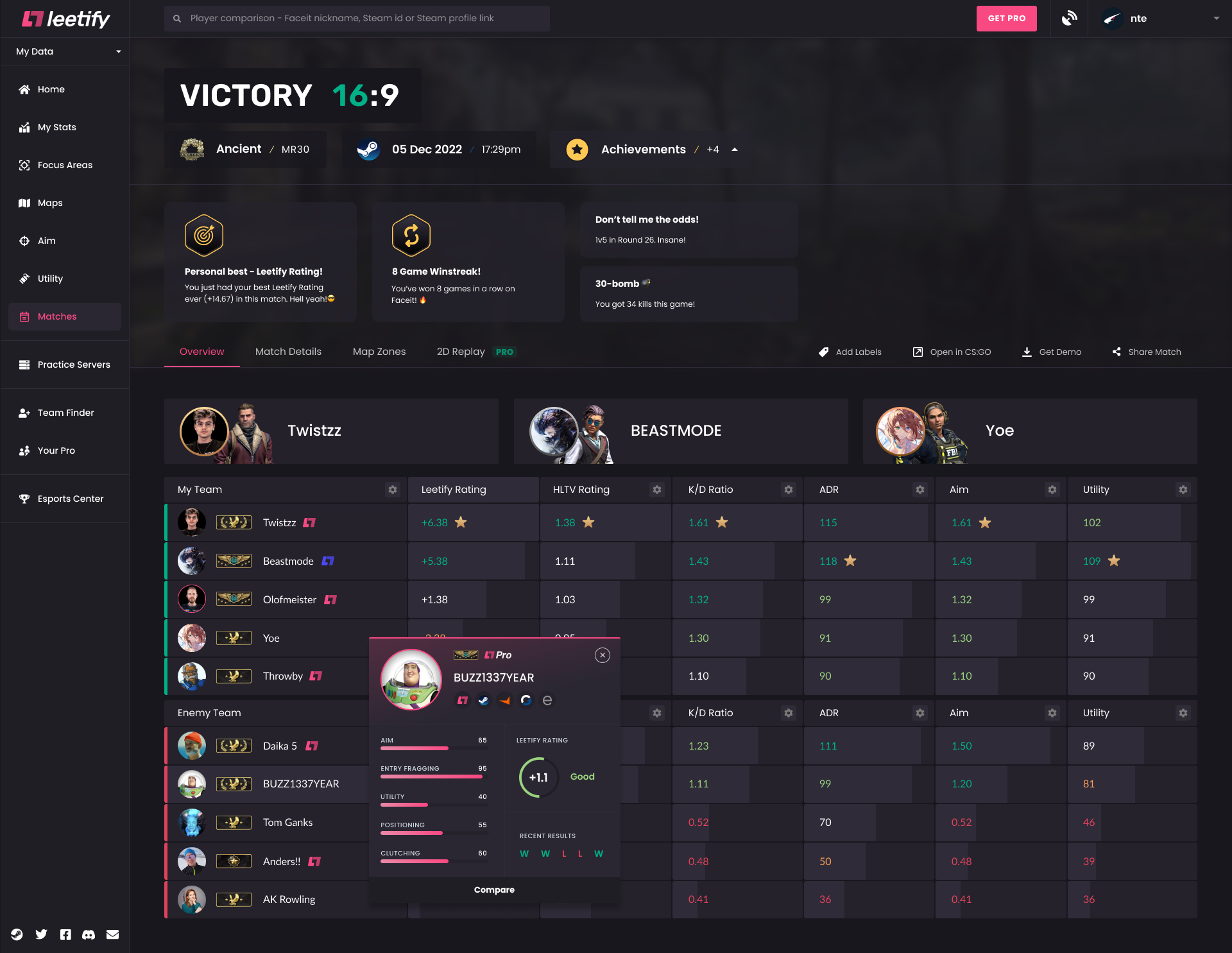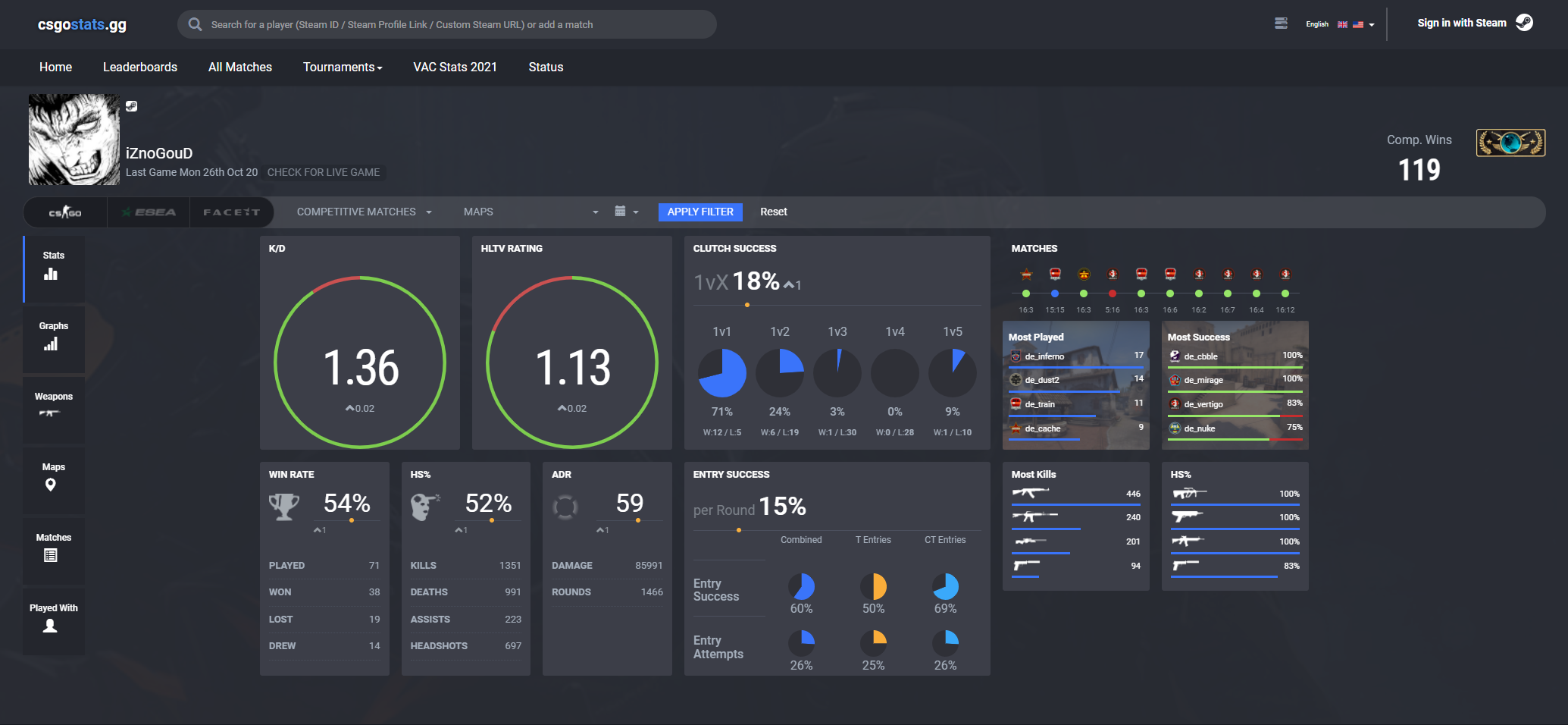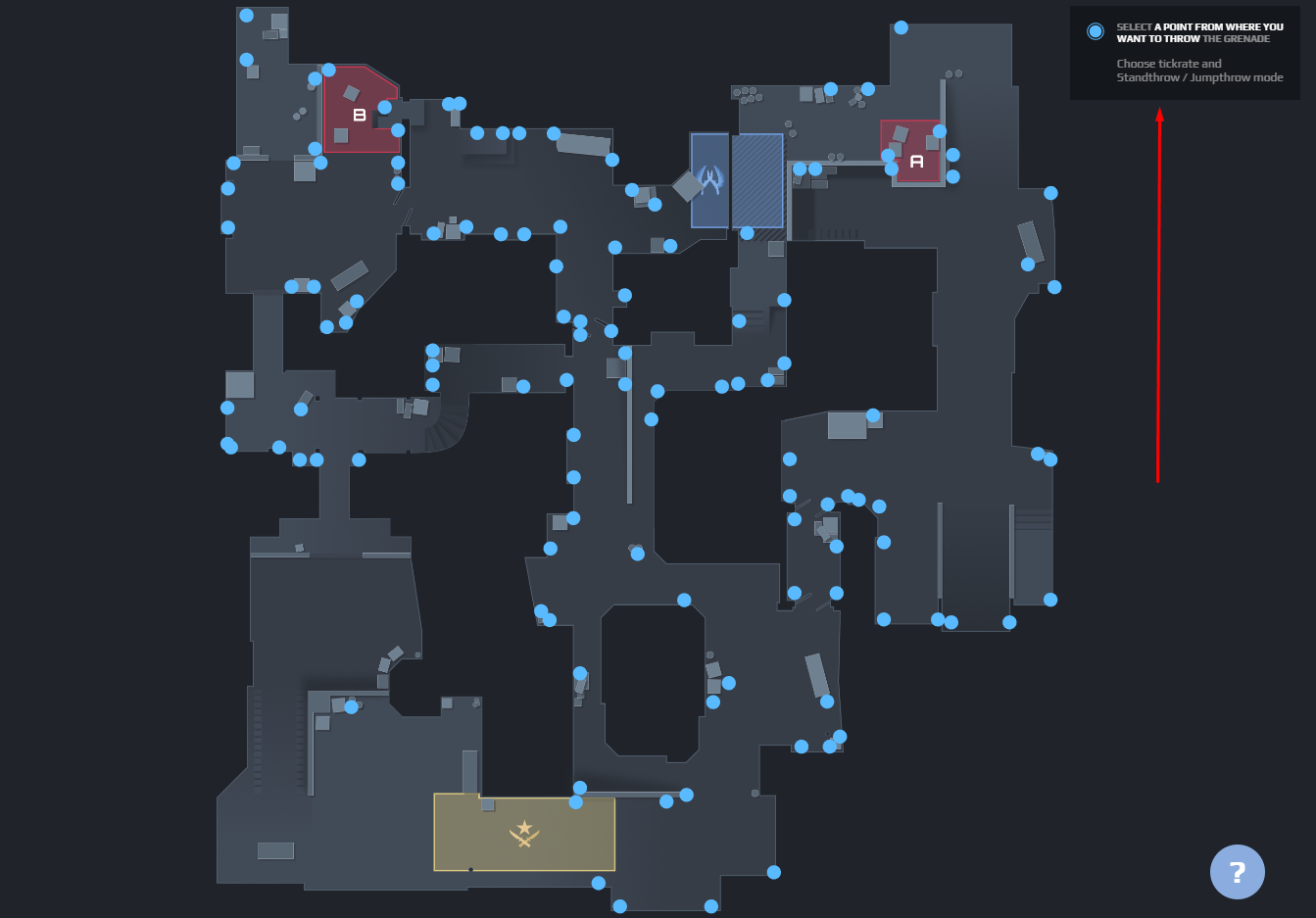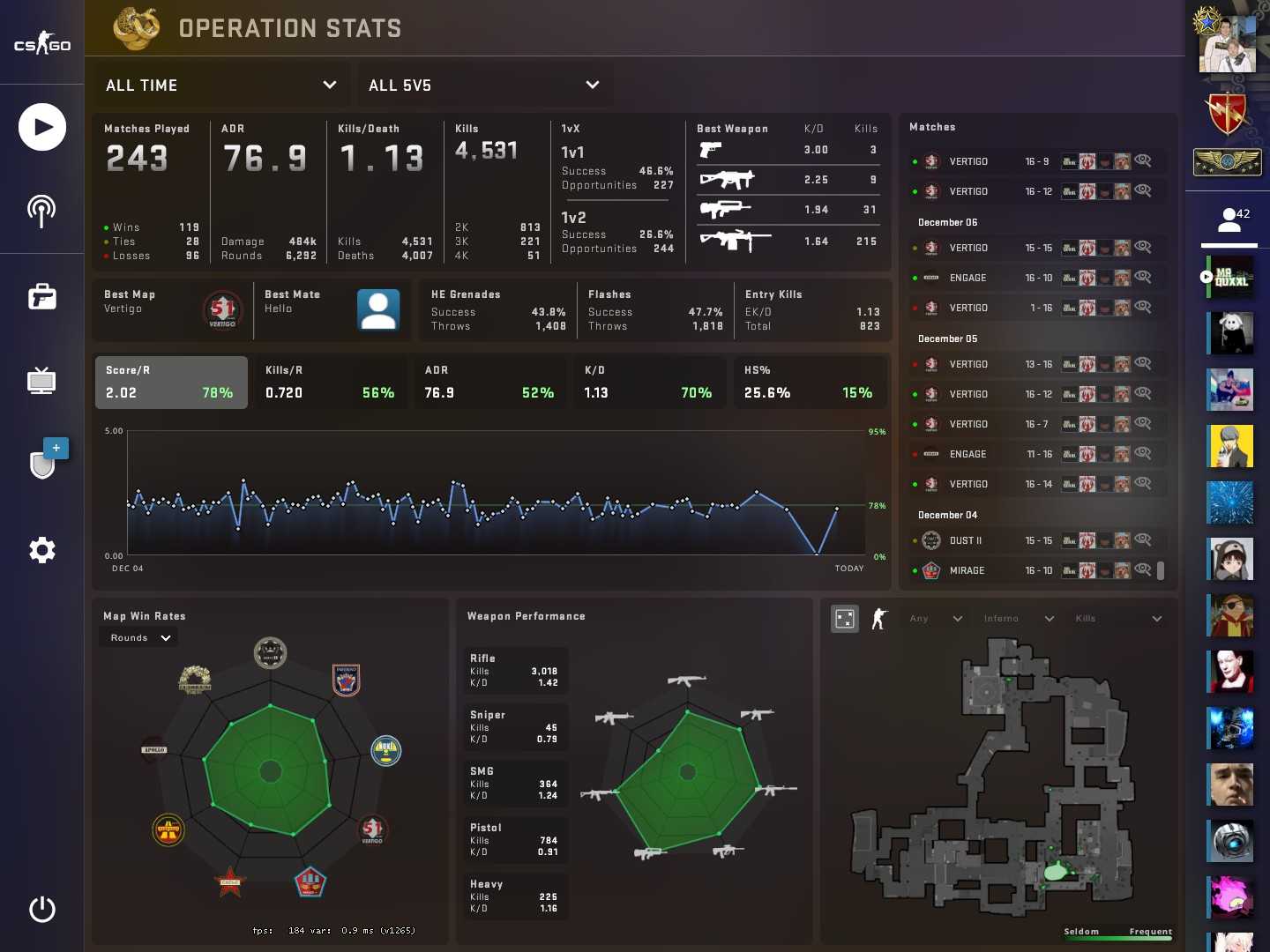An Overview of the Best CSGO Stats Trackers
Learn which different Stats Trackers are there out on the internet and which ones are the best for your needs!
Learn which different Stats Trackers are there out on the internet and which ones are the best for your needs!
Every competitive CS:GO player likes to have some kind of control over their game and their performance, especially when they’re getting better in the long or short term. But how can you really get a good grasp on how good you’re getting?
That’s where some Stats Trackers come into play. These are generally websites that will read your Steam Data and analyze your performance over a certain period of time, giving you more information than just a simple kill-to-death ratio analysis or the most played maps.
In this article, we’re going to take a look at some of our favorites and the tools that they provide. Remember that every player has different tastes and needs, which means that there is no right or wrong tool, only the one that is better for you. Let’s talk about them:
This one is rather recent but has been in the mouths of many CS:GO players due to some of the tools it provides. As with most of them, it provides some detailed statistics about your recent matches, but the big difference maker is the analysis it provides and how it shows what you need to work on.
With a very clean design, you can easily understand what you did well and what you could have done better, and the more you play, the more accurately it can represent its data. It’s also automatic - you don’t need to waste time uploading your demos to the system, and it’s also integrated with FACEIT (you can even login with it).

The website even provides an “Academy” feature, where you can practice stuff like spray patterns directly on your browser, although you would be better practicing these in-game with some workshop maps.
If I had to give my personal opinion, Leetify is my favorite tool of the ones I’ll be talking about. You can access Leetify here.
You won’t find a more direct naming than this - and CS:GO Stats does exactly what it implies. It shows you your statistics in a very graphically appealing way, with some easy-to-read and understandable language. It also features a very detailed look at entire match stats, with the cherry on top being the round-to-round analysis.
One of the most used features on this website is the VAC Ban tracker. Let’s say you’re playing a match and it’s one of those where you really think that someone might be cheating. If you upload the match to the platform, you can later check to see if the player has been banned, as it will track the Steam account indefinitely.

If you’re someone that’s looking to control your stats on a match-to-match basis, this is the tool to go, although it also provides some interesting insights in the long run. But, to be honest, if you’re looking for a tool that works best in the long run, go for the first one I’ve referred to, Leetify. You can access CS:GO Stats here.
This is a rather different tool, but I decided to have it in here due to how it works and what it can bring to the regular player. This is a tool that is more focused on improving rather than controlling what happened in past games. You can find very detailed Smoke Grenades throws to help you get to the next level (at least in the Smoke and Utility department), with a very easy-to-use user interface (UI), as well as easy-to-understand instructions.
Naturally, it still does have the common match statistics like the other ones, and although they’re presented in a prettier way than others, I’d say the previous ones provide more detailed information. The thing is, if you don’t want to be using several different tools and want one that can also serve as a good tutorial database, this is definitely the one.

You can also upload demos and look at them on a very detailed 2D board that allows you to take a look at positioning and take some important conclusions on what went good or bad in a team environment. It’s basically the same as watching the map on a demo, but with the advantage of having more information, especially on the utility usage department. And let’s be honest, it’s way more graphically appealing than what the game offers.
You can access Scope.gg here.
CSGO HUB is one of the most complete analysis and stat tracking tools there are, with a few caveats that make it not as desirable as other ones. While it’s one of the best, it only tracks matches from the official Valve servers and ESEA. If you only play in those, it’s one of the best solutions you can use. But if you also play FACEIT… you’re out of luck.
CSGO HUB has all the tools available on other services, with an easy-to-use interface, with the addition of useful maps to practice your aim, weekly report cards to analyze your evolution in the long run, and even tips for every map on the rotation.
It’s also free to use, making it better than some of the other solutions that require a fee.
You can access CSGO HUB here.
This one is the official in-game stat-tracker - you need to pay an extra subscription fee at a very low price per month. Although it’s really well made from a design standpoint and is available in-game, it’s only useful if you only play on the official matchmaking servers. CS:GO 360 won’t record your stats from other services, such as FACEIT or ESEA.
For a more casual player, it’s actually a very good service. The price is super attractive (less than 1€/$ per month) and gives you access to stats such as your last played maps, kill/death ration, gun usage, map’s heat zones, etc.

Image courtesy of Reddit user u/Weasdy
Its biggest advantage is, without a doubt, being available in-game. It could be one of the best tools in the future if Valve somehow allows it to record stats from external services.
You can access CS:GO 360 in-game.
In the end, and like I said in the beginning, there’s no one correct tool to use. While some provide more insights on a certain department, others might be better for something else. Just take your time and understand which one (or ones) works best for what you will be doing.
Regarding safety - Some players might be worried that these websites may be scams that could steal your Steam passwords. The ones I listed are safe and even if you’re not sure, there’s an easy way to be certain. Most of them use the Steam Login feature to access your account and that’s a special way that Valve implemented to make sure external websites only have access to your account’s API and not more. They can’t have access to your password or Guardian (authenticator) settings. If you’re still unsure and you’ve already searched to understand how Steam Login works, my advice is to simply avoid using these tools.
Thank you for reading this article! You can reach out to me for feedback or suggestions via Twitter!